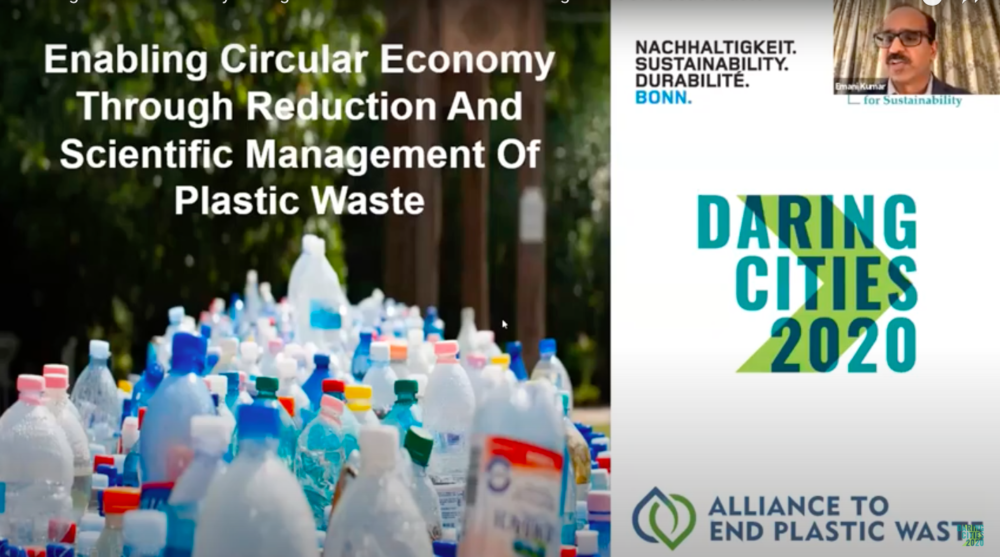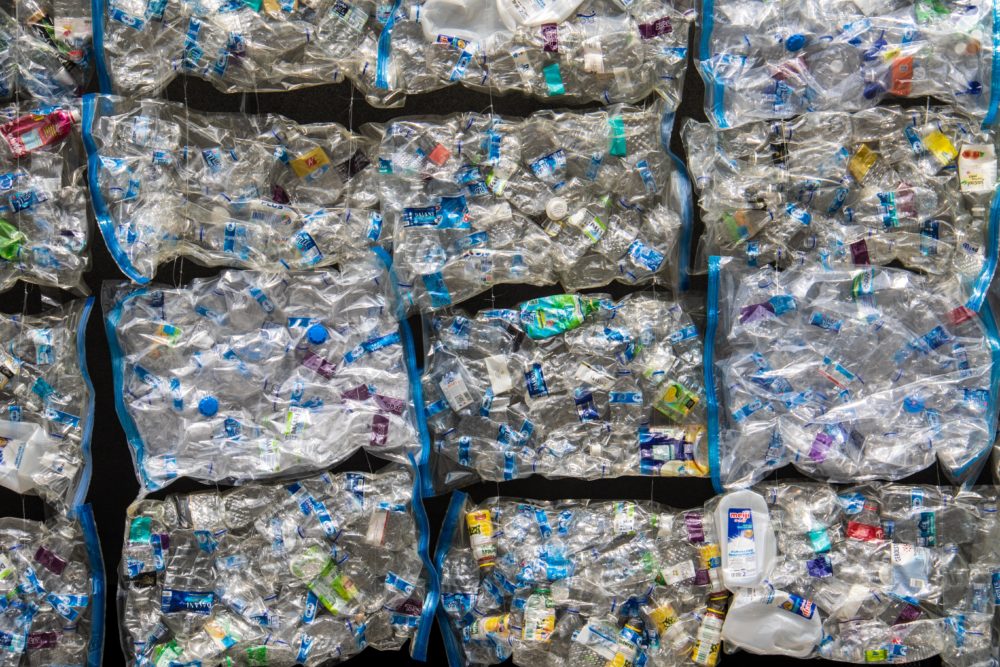
In order to access the video, you must create an account on Daringcities.org or log-in.
Plastic is a valuable material and occupies a vital place in the economy and in our business. However, low rates of collection, reuse and recycling, generation of microplastics from product wear and tear, and often unscientific and unsustainable disposal measures lead to far-reaching environmental, health, social and economic impacts. At the heart of the problem is the linear ‘take-make-dispose’ model of consumption. Of the 8.3 billion metric tons of plastics generated, 6.3 billion tons have become waste. Of the total plastic waste, only 9 percent was recycled, 12 percent was incinerated and 79 percent accumulated in landfills or the natural environment. This calls for rethinking the global plastic system and shift towards a circular economy which is restorative and regenerative by design and also creates economic opportunities. In the context of the challenges mentioned and existing global commitments to simultaneously enhance the plastics economy, increase resource efficiency and reduce marine litter, a basket of solutions is needed that comprises of legal, voluntary, market based and informational measures across stakeholders to promote the transition to a circular economy. The transition will also contribute towards the UN Sustainable Development Goal on Sustainable Consumption and Production (SDG 11 & 12), specifically target 12.5 on substantially reducing waste generation through prevention, reduction, recycling and reuse while also contributing towards SDG 14, Life on Water, through target 14.1 on preventing and reducing marine pollution of all kinds.
The session was organized by ICLEI South Asia and the Alliance to End Plastic Waste (AEPW). It aims to deliberate on opportunities offered by circular economy measures and identify concrete actions to catalyse a transition to a circular economy and address the growing plastic waste menace. The session also highlights the crucial role played by the private sector in driving the development of innovative business models, packaging design, materials and technologies in line with the circular economy.
Viewers will watch speakers work towards the following outcomes :
- Establish the need for an effective waste management infrastructure to implement the waste hierarchy, upscale the cycling of plastics in the economy, and prevent leakage into the environment
- Improve political and public awareness of the impacts of plastic pollution in the environment
- Explore opportunities for recovering the value of plastic as a resource through circular economy tools by engaging public and private sectors
Speakers
- Emani Kumar, Deputy Secretary General, ICLEI and Executive Director, ICLEI South Asia, India
- Gino Van Begin, Secretary General, ICLEI – Local Governments for Sustainability, Germany
- Jacob Duer, CEO, Alliance to End Plastic Waste, Singapore
- Justin Wood, Vice President, Strategic Partnerships, Alliance to End Plastic Waste, Singapore
- Anne Pedretti, SUEZ Delegate and Cities Programme Co-Chair, Alliance to End Plastic Waste, France
- Kazunobu Onogawa, Director-CCET, Institute for Global Environmental Strategies (IGES), Japan
- Christopher Speier, Technical Team Lead and Advisor-International Solid Waste Management, GIZ, Germany
- Andre Dzikus, Chief of the Urban Basic Services Section, UN-Habitat, Kenya
- Sanjit Rodrigues, IAS, Municipal Commissioner, Corporation of City of Panaji, India
- Suryanto Ibrahim, Head of Environment Agency, Balikpapan City, Indonesia
- Rahul Raj PS, IAS, Additional Commissioner (SWM-HIMSW & Sanitation), Greater Hyderabad Municipal Corporation, India
- Philipe Blank, Head of Circular Economy, Centre of Excellence Sustainability, Henkel Beauty Care, Germany
